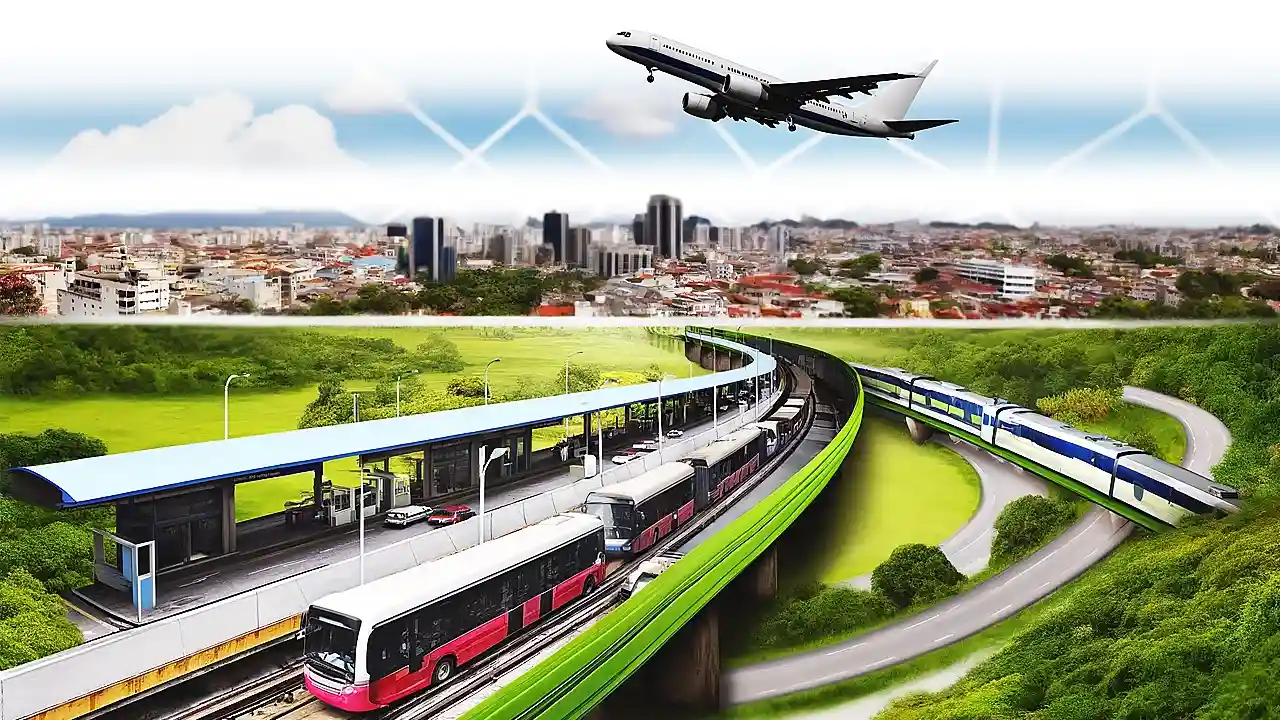Home »
It’s challenging to choose the appropriate kind of transportation for a given situation when there are so many options accessible. Some options are expensive and fast, others are inexpensive and long-distance. Every kind of transportation has pros and cons of its own, therefore the best option for one individual or circumstance may not be the best option for another. In this article, we’ll cover various forms of transportation as well as their advantages and disadvantages.
Which Transportation is the Best?
Planes:
Planes are an appropriate choice for transportation since they are the fastest and most efficient. Since we typically require an aircraft to reach our destinations, our minds are wired to link travel with locating inexpensive flights. Booking a flight is nearly always necessary when traveling to and from a country. Although inside a country travel arrangements can vary slightly.
Advantages of Planes:
Traveling by air is a fast, trustworthy, and convenient option. It is regarded as the preferred commodities transportation method that is most economical. It offers a dependable, practical, expedient, and standard service. They are all prearranged for you, have clearly defined timetables that are simple to follow, and are often rather dependable.
Disadvantages of Planes
Because even a small catastrophe can generate large losses, flying is the riskiest form of transportation. Most people agree that traveling by air is the costliest form of transportation. Many materials such as explosives, gasses, batteries, burned solids, and liquids are inappropriate for use in these kinds of products.
Trains:
There is a noticeable difference in the shapes and sizes of trains when traveling overseas. For example, a rail ride in Sweden and an Indian train ride are extremely dissimilar. Despite this, trains are a dependable mode of transportation if you need to get anywhere in a reasonable amount of time and with a reasonable level of comfort.
Advantages of train:
Trains are maybe the second-fastest form of transportation after planes, and they’ll get you where you’re going as soon as possible on land. There isn’t much traffic, and they usually leave on time and make the fewest stops possible on the route. They typically feature bathrooms as well, which is a big plus on a long-haul trip.
Disadvantages of Trains:
As trains are typically the fastest means of land transportation, they are also typically the costliest. Additionally, once you board a train, you’re in it for the long haul because they don’t stop very often. There are a lot of people on trains since they are big.
Buses:
When it comes to saving money on sightseeing or meals, buses are perhaps the most economical choice for the frugal tourist. Instead of taking a sleeper bus if you’re not used to traveling for long, go for a tourist bus. Despite being marginally costlier, they have features like air conditioning and reclineable seats.
Advantages of buses:
In all countries, buses are undoubtedly the most affordable mode of transportation. Certain buses feature reclining seats that enable you to sleep, while others are air-conditioned and equipped with restrooms. Even free Wi-Fi is available in some.
Disadvantages of buses:
With frequent stops to pick up locals along the way, they are typically the longest and most tiresome mode of transportation. Pickpockets may target you because they are congested, extremely uncomfortable, and filled with people. Typically, reservations for VIP buses don’t guarantee opulent or opulent experiences.
Boats:
Boats are simply meant to carry you over the water, therefore their usefulness is restricted. However, if your destination is only a lake, river, or ocean away, they can also be extremely helpful resources for low-cost travel.
Advantages of boats:
In addition to moving you over rivers and other bodies of water far more quickly than a bus can, boats can also save you money on accommodations if you choose overnight ferry voyages. Boat pricing can vary depending on how opulent you’d like your journey to be.
Disadvantages of boats:
Furthermore, boats can lack adequate sanitation and are packed too tightly. You essentially get what you pay for when it comes to ships. Don’t anticipate luxurious accommodations if you purchase a cheap ferry boat.
Personal Vehicles:
Individuals can travel per their schedules and preferences due to the freedom and convenience that personal vehicles like cars, motorcycles, etc. offer. Still, they have expenses like parking, insurance, fuel, and upkeep. Private automobiles can add to pollution and traffic jams, particularly in cities.
- Audi GT50 Concept: A Loud Reminder of Why Car Enthusiasts Fell in Love With Audi
- Nearly 30% of UK Drivers Believe Car Tax Should Be Based on Mileage — Survey
- Why Planes and Boats Escaped the Luxury Tax But Cars Didn’t
- Australia’s Headlight Confusion: Authorities Warn Drivers After Viral $250 Headlight Rule Goes Wild Online
- 2025 Hyundai Venue Facelift Launched in India – Full Details, Variants, and Price
Advantages of personal vehicles:
When you have a car, you don’t have to wait for a ride-sharing service or checkup bus timetables to go where and when you want. Cars are very useful when it’s too hot outside or raining to walk or wait for a bus.
Disadvantages of personal vehicles:
Having a personal car is costly, and maintaining and repairing it will cost extra money. The number of people suffering from cancer, heart disease, and respiratory disorders has increased in cities due to the increase in air and noise pollution caused by personal vehicles.
Conclusion:
Finally, the “best” mode of transportation will be influenced by some aspects, such as budget, accessibility, environmental effects, and personal inclinations. Depending on the needs and conditions, a combination of different modes of conveyance may offer the most cost-effective and environment-friendly solution. Picking the best option is important because it guarantees a comfortable and enjoyable travel.
